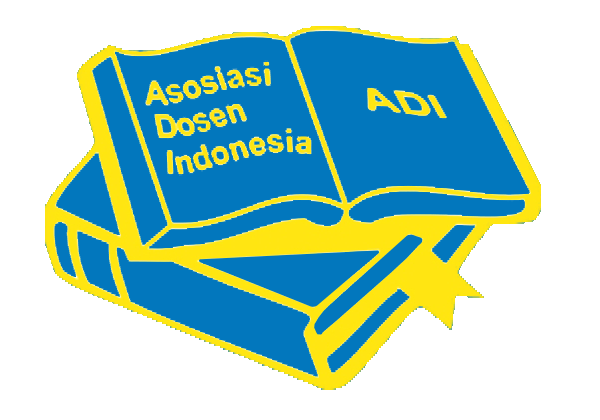Motivation And Student Learning Outcomes In Problem Based Learning
Abstract
Applying eclectic learning means combining two or more learning models to be applied at one time. This article aims to analyze students' motivation and learning outcomes in participating in a combination of learning from problem based learning (PBL) with cooperative learning. This research is weak-experimental using static-group pretest-posttest design. A total of 52 students (male= 35, female= 17) 8th grade junior high school were taken using the cluster random sampling method. Motivation data are collected using a questionnaire, while learning outcomes use skills tests. PBL as the main model combined with cooperative type team game tournament (TGT) and jigsaw is applied as a treatment. Data analysis using descriptive statistics and t-test. The results showed that motivation [t(25)= 51.97, p= 0.000] and learning outcomes [t(25)= 13.41, p= 0.000] increased significantly in the PBL-TGT group. Likewise with motivation [t(25)= 48.88, p= 0.000] and learning outcomes [t(25)= 11.74, p= 0.000] in the PBL-Jigsaw group. There was no difference in increased motivation (t(50)= 0.963, p= 0.34) and learning outcomes (t(50)= 0.000, p= 1.000) in the two groups. It can be concluded that PBL is compatible combined with TGT and Jigsaw in increasing motivation and learning outcomes.
References
Andrian, R., Suroto, S., Tuasikal, A. R. S., Dhani, S. S. S., & Setyorini, S. (2020). Efektivitas Model Pembelajaran Motorik Berbasis Movement Based Games Pada Siswa Sekolah Dasar. JOSSAE (Journal of Sport Science and Education), 5(1), 64–74.
Artha, A. A., Syam T, A. R., & Priambodo, A. (2020). The Application of Teams Games Tournament (TGT) and Teaching Game for Understanding (TGfU) Learning Models on Learning Motivation and Volley Ball Passing Skills. Budapest International Research and Critics in Linguistics and Education (BirLE) Journal, 3(1), 46–53. https://doi.org/10.33258/birle.v3i1.751
Awe, E. Y., & Benge, K. (2017). Hubungan Antara Minat Dan Motivasi Belajar Dengan Hasil Belajar Ipa Pada Siswa SD. Journal of Education Technology, 1(4), 231. https://doi.org/10.23887/jet.v1i4.12859
Bores-García, D., Hortigüela-Alcalá, D., Fernandez-Rio, F. J., González-Calvo, G., & Barba-Martín, R. (2020). Research on Cooperative Learning in Physical Education. Systematic Review of the Last Five Years. Research Quarterly for Exercise and Sport. https://doi.org/10.1080/02701367.2020.1719276
Burstiando, R. (2015). Peningkatkan Motivasi Intrinsik dan Ekstrinsik Melalui Sport Education Model pada Permainan Bolabasket. Jurnal Sportif, 1(1), 60–73.
Fraenkel, J. R., Wallen, N. E., & Hyun, H. H. (2012). How to Design and Evaluate Research In EducatIon (6th ed.). New York: Mc Graw HIll.
Gunawan, E. (2019). Motivasi Bermain Bola Basket Siswa Sma Negeri 12 Makassar. Jp.jok (Jurnal Pendidikan Jasmani, Olahraga Dan Kesehatan), 2(2), 14–23. https://doi.org/10.33503/jpjok.v2i2.447
Guzmán, J. F., & Payá, E. (2020). Direct Instruction vs. Cooperative Learning in Physical Education: Effects on Student Learning, Behaviors, and Subjective Experience. Sustainability, 12(12), 4893. https://doi.org/10.3390/su12124893
Heaviside, H. J., Manley, A. J., & Hudson, J. (2018). Bridging the gap between education and employment: A case study of problem-based learning implementation in postgraduate sport and exercise psychology. Higher Education Pedagogies, 3(1), 463–477. https://doi.org/10.1080/23752696.2018.1462095
Hung, W., Mehl, K., & Holen, J. B. (2013). The Relationships Between Problem Design and Learning Process in Problem-Based Learning Environments: Two Cases. Asia-Pacific Education Researcher, 22(4), 635–645. https://doi.org/10.1007/s40299-013-0066-0
Jati, A. W. K., Hidayah, T., & Wahyudi, A. (2019). The Implementation of Team Games Tournament Learning Model to The Volleyball Play Technique in Randudongkal Junior High School. Journal of Physical Education and Sports, 8(4), 32–37.
Kim, N. J., Belland, B. R., & Axelrod, D. (2019). Scaffolding for optimal challenge in k–12 problem-based learning. Interdisciplinary Journal of Problem-Based Learning, 13(1). https://doi.org/10.7771/1541-5015.1712
Metzler, M. W. (2011). Instructional Models for Physical Education (3rd ed.). New York: Routledge.
Meyers, L. S., Gamst, G. C., & Guarino, A. J. (2013). Performing Data Analysis Using IBM SPSS. John Wiley & Sons, Inc.
Ministry of National Education of Republic of Indonesia. (2016). Panduan Pembelajaran untuk Sekolah Menengah Pertama (1st ed.). Jakarta: Direktorat Jenderal Pendidikan Dasar dan Menengah.
Nuriawati, I., Suroto, S., Tuasikal, A. R. S., & Setyorini, S. (2020). Efektivitas Model Permainan Target Berbasis Goal Orientation Pada Pendidikan Jasmani. Multilateral Jurnal Pendidikan Jasmani Dan Olahraga, 19(1). https://doi.org/10.20527/multilateral.v19i1.8313
Prakoso, B. B. (2015). Upaya Peningkatan Kualitas Proses Belajar Mengajar PJOK melalui Evaluasi Diri Guru. In Optimalisasi Hasil-Hasil Penelitian dalam Menunjang Pembangunan Berkelanjutan (pp. 510–523). Makassar.
Suroto. (2017). Inovation Teaching Method for Physical Education Teacher in Indonesia. In Proceeding 2nd International Conference of Sport Science (pp. 94–107). Surabaya: Unesa University Press.
Suroto. (2018). Active Learning Model in Track and Field Course for Pre-service Physical Education Teacher. In Proceedings of the 2nd Social Sciences, Humanities and Education Conference: Establishing Identities through Language, Culture, and Education (SOSHEC 2018). Paris, France: Atlantis Press. https://doi.org/10.2991/soshec-18.2018.68
Todd, E. L., Begoña, C.-R., & Carol, C. I. (2016). An evaluation of teachers’ knowledge and use of physical education instructional models. Journal of Physical Education and Sport ® (JPES), 16(208), 1310–1315. https://doi.org/10.7752/jpes.2016.04208
Wallhead, T., & Dyson, B. (2017). A didactic analysis of content development during Cooperative Learning in primary physical education. European Physical Education Review, 23(3), 311–326. https://doi.org/10.1177/1356336X16630221
Copyright (c) 2020 Jp.jok (Jurnal Pendidikan Jasmani, Olahraga dan Kesehatan)

This work is licensed under a Creative Commons Attribution-ShareAlike 4.0 International License.
Authors retain copyright and grant the journal right of first publication with the work simultaneously licensed under a Creative Commons Attribution 4.0 International License that allows others to share the work with an acknowledgement of the work's authorship and initial publication in this journal.





.png)






